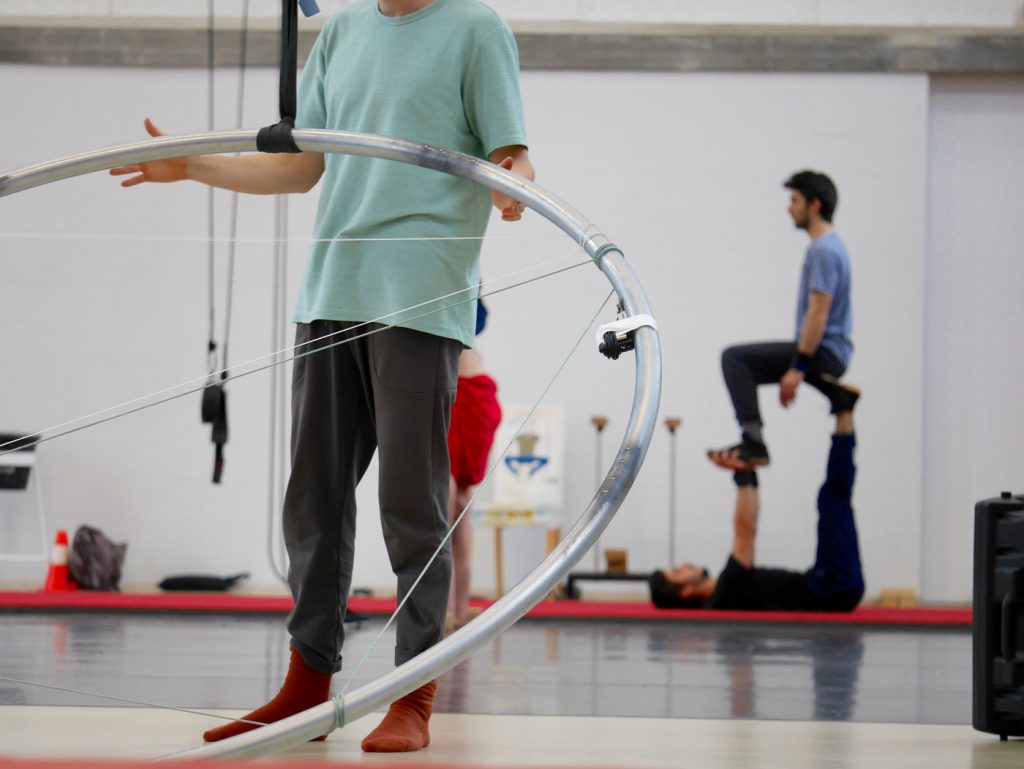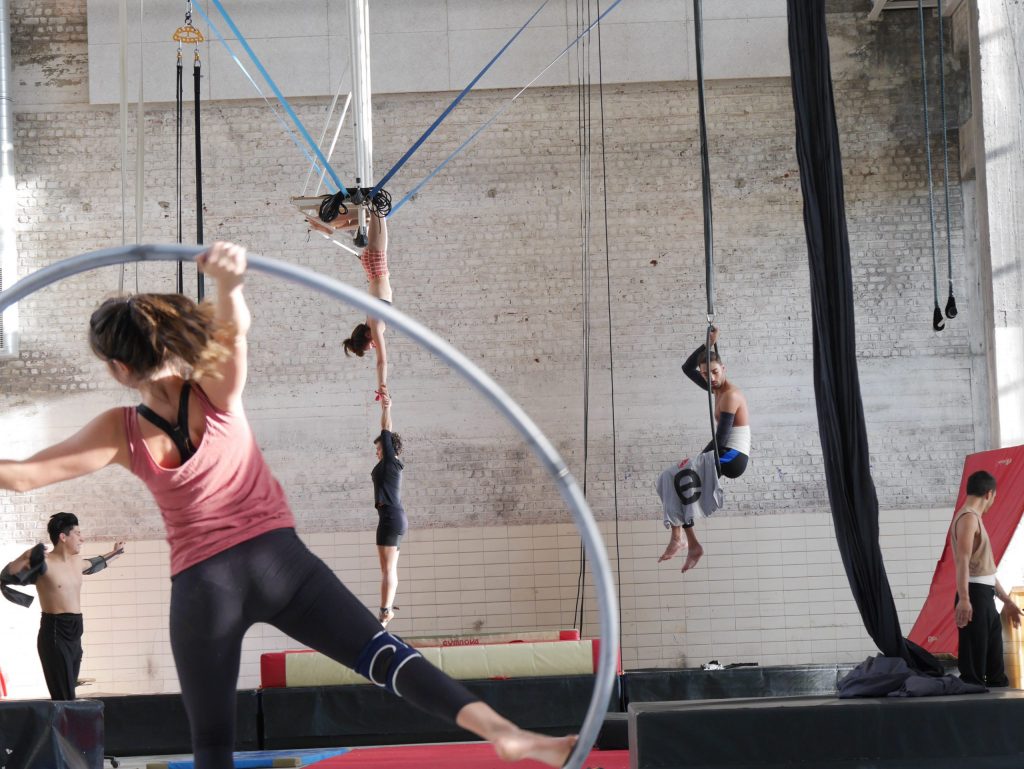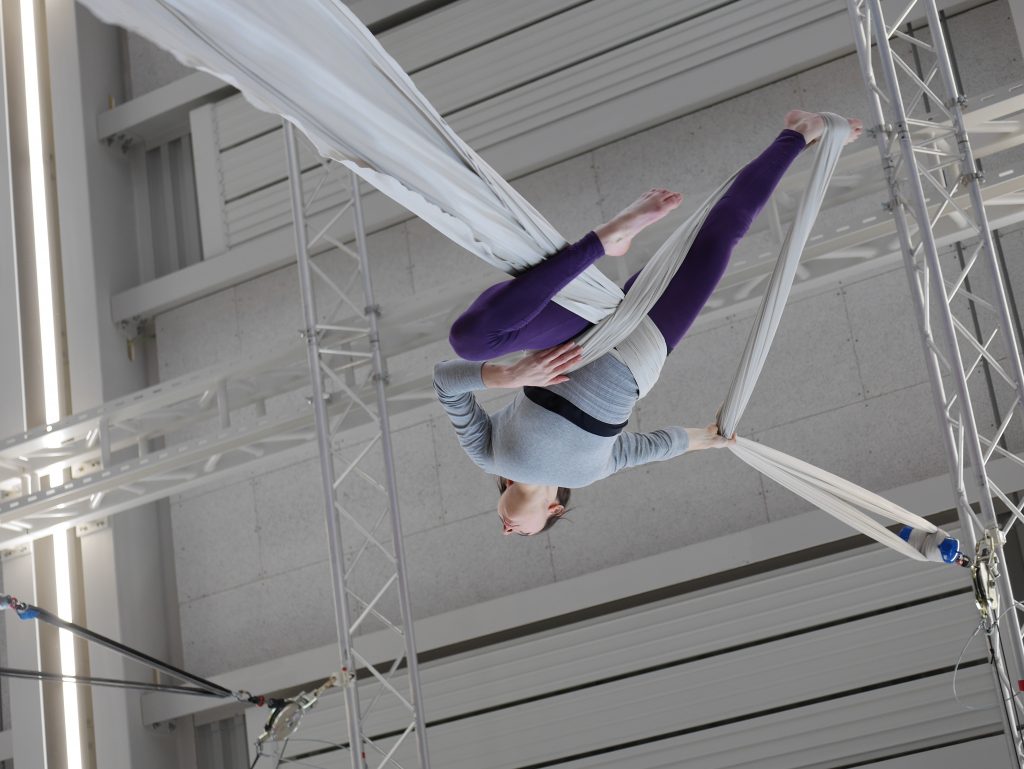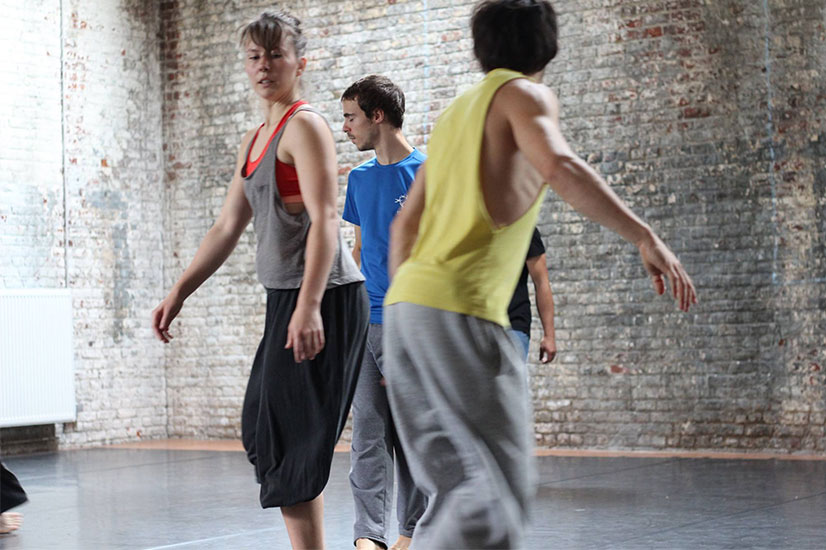sister schools
When ÉSAC was founded it was based on the model and expertise of the great circus schools of that time: the Centre national des arts du cirque in Châlons-en-Champagne, the École nationale de cirque in Montreal and the National Centre for Circus Arts in London. It was one of the first to sign up to the Bologna system and to award a bachelor’s degree in circus arts.
The training opportunities available have been steadily growing since 2003. When Annie Fratellini opened her revolutionary Academy in 1974, shifting circus training from traditional families to dedicated colleges, who would have believed that 40 years later, circus arts would take on the same status as other university programmes? Today, the map of Europe testifies to an exponential increase in the number of preparatory and higher education institutions.
Circus fans and students are a mobile bunch. Take part in a convention or attend a college performance and you’ll see how distances have become shorter and we are getting back in touch with the nomadic tradition. Thanks to the mobility of their practitioners, teachers and students, colleges are intrinsically linked to each other.While the joys of the circus are making their way to all four corners of the globe, the circus community is a small one.

It soon became clear that a network of circus schools was needed. And so it was that, before it was even officially recognised, ÉSAC joined forces with the CNAC and the National Centre for Circus Arts to create FEDEC, the European Federation of Circus Schools, in 1998.
Now, FEDEC is a European and international network with nearly 70 members (2/3 are circus schools dedicated to secondary, professional and higher education courses and training options, while the remaining 1/3 are organisations dedicated to information, research and advocacy relating to the circus arts) in more than 20 or so countries throughout Europe and beyond.
FEDEC strives to support the development and evolution of training, teaching and creativity in the circus arts field.
Bologne
Since it was officially recognised in 2003, ÉSAC has respected the spirit of the so-called Bologna Decree (2004), which promotes the standardisation of European qualifications and encourages students to travel freely throughout Europe. By describing the components of courses and thus ensuring the transparency of the French-speaking Community’s higher education system, the diploma is intended to facilitate not only academic recognition, between institutions in different countries, but also professional recognition, within the European employment market.

The diploma consists of two documents:
- the diploma identifies the awarding institution, as well as the student (surname, first name, place and date of birth). It specifies the academic year in which the diploma was awarded, the type of qualification (Bachelor’s, Master’s in X) and the final grade.
- the supplement to the diploma (SD) contains lots of information about the nature and level of the studies that have been completed successfully, the institutional context in which these studies were completed (ÉSA), the language or languages in which the course was taught, any specific features of the student’s programme, as well as an explanation of the ECTS classifications in force at ÉSAC.
ÉSAC adopted the Erasmus+ charter in November 2018 in order to raise its international profile. The international department is currently putting together its international exchange strategy.
More information?
Contact the international department: Thaïs César – thais.cesar@esac.be or +32 2 526 79 02.
Erasmus strategy statement for 2021-2022
The École supérieure des arts du cirque (ÉSAC) adopted the Erasmus Charter for Higher Education to be implemented as of 2018-2019. It has been a member of the European Federation of Professional Circus Schools (FEDEC) since it was founded and thanks to this it has already built a solid international partnership (including in particular with the Centre national des arts du cirque in Châlons-en-Champagne, the École nationale de cirque in Montreal and the National Centre for Circus Arts in London), which could be consolidated by adopting the Erasmus charter.
In this respect, FEDEC is the force behind the European INTENTS project, the aim of which is to define and recognise the profession of circus arts teacher, continuing education and innovative teaching tools in this field. As ÉSAC’s eligibility is dependent on its signing up to the Erasmus+ charter, it is clear that the potential for joint projects in the future, whether they are steered by FEDEC or by ÉSAC, requires this upgrade.
The purpose of adopting the charter is for partners to share best practices with each other with a view to enhancing the quality of the education they provide. To begin with, ÉSAC will focus on developing staff mobility (training and teaching assignments), to help develop international partnerships in the circus world, and more generally, to share all the benefits of these international academic exchanges with the students (including in particular comparing new techniques, creating new opportunities and forging new relationships, as well as developing new networks of a range of institutions and individuals).

ÉSAC is committed to the goals of the Lifelong Learning Programme and runs an international exchange scheme which, in the long term, will also help students when it comes to exchanges (especially for young graduates). Promoting an international approach has been one of ÉSAC’s priorities since it was founded.
At ÉSAC, the module-based courses, the use of ECTS credits, the presence of many different nationalities among students and academic staff are some of the elements that demonstrate the value and commitment of playing an active role in constructing and expanding the European Union. Making students aware of cultural differences and the importance of foreign languages improves their ability to adapt to the challenges of the employment market, particularly in the circus world, which is, by definition, an international community and particularly affected by intercultural issues.
A range of activities will be offered to raise the profile of the different options provided by the Erasmus programme, including socio-cultural activities, information sessions, opportunities to share experiences and noticeboards dedicated to international relations. The website (in French, English and Spanish) already contains useful information and will include the Erasmus Charter and the Strategy Statement.
An institutional coordinator (the head of COCOF’s International Relations, Education and Training Department – CRIEF), together with the implementation coordinator, is responsible for the overall management of mobility for students and staff (including teaching, administrative and technical staff) in collaboration and consultation with the teachers. Together, all of these stakeholders oversee the development of networks of partners to that can be relied on according to specific local needs and projects.
ÉSAC has a website and noticeboards dedicated to international relations where students and staff members can access all sorts of useful information about the Erasmus Charter and who to contact. The international office is also open at set times for students and staff.
ÉSAC is also committed to combating all forms of discrimination in its educational, social and cultural approach, and has equipped itself with the resources to achieve this. Firmly of the belief that diversity benefits everybody, it welcomes all students, administrative, technical and teaching staff, without any distinction based on race, culture, gender or religion.

In order to ensure the quality of its exchange activities, ÉSAC:
- applies the ECTS system in all areas;
- regularly updates the academic curriculum to better meet the requirements of the world of work;
- regularly updates its website.
For its staff, ÉSAC:
- organises information meetings;
- provides practical support (travel, accommodation, programme, administrative support);
- supports the application at institutional level and continues to offer help before, during and after the exchange;
- offers additional financial support (as far as financial resources allow) if the Erasmus grants are insufficient;
- shares information about exchange experiences during working meetings.
For incoming staff, ÉSAC:
- provides information via the website;
- welcomes the members of staff when they arrive to help them fit in with the local culture (a tour of the college, opportunities to meet other students and members of staff, an introduction to the courses available, option to observe classes);
- helps the members of staff find suitable accommodation or, where applicable, provides a room specifically for exchange staff;
- organises social and cultural activities;
- offers opportunities to improve language skills.

For outgoing students taking part in exchange workshops (especially for young graduates), ÉSAC:
- organises information sessions (focusing on administrative, educational, legal, financial and cultural issues);
- will provide information about suitable partners and activities thanks to noticeboards dedicated to international relations and information sessions;
- will offer additional financial aid to students who apply for it, based on means testing;
- will take out insurance for exchange students;
- will organise a debrief to assess the positives and negatives of the experience after the exchange has finished.
ÉSAC complies with the Erasmus programme’s “Quality Commitment”. For all students who would like to go on an optional exchange, the college offers educational, cultural, legal, administrative and personal help and assesses the need for help with language skills. All of these steps mean that we can adapt the exchange to the individual student’s learning journey.
ÉSAC, the host institution and the students or young graduates will be bound by an exchange contract. This contract defines the goals of the exchange and the partners’ obligations. It clearly defines the duration of the exchange and the programme, as well as the funding, payment deadlines, follow-up and supervision of the experience. It also includes a detailed programme of the activities involved and how they are to be supervised, as well as a skills assessment.
The quality of the exchange is guaranteed by the appointment of a point of contact in the host country and in the home country to help the student settle into their new environment and help follow up administrative and educational issues. These points of contact will be close at hand, and will be in touch with each other at all times.
The merits of the beneficiary’s exchange experience are identified, validated and assessed either by the home or the host institution. When they return, a debrief will identify any successes and address any difficulties encountered. When the exchange takes place before graduation, the experience will be an integral part of the course curriculum and the grades awarded will appear on the student’s transcript and in a supplement to the diploma, in order to improve international transparency and facilitate academic and professional recognition of qualifications. For exchange programmes available to young graduates, the procedure for submitting the information about this exchange to the website http://www.moneuropass.be/ will be explained.

Lastly, ÉSAC organises ongoing and ad hoc assessments (during specific working meetings or thanks to its contacts within the FEDEC network in particular) of its international activities to make sure that the exchange options available as well as local and international demand are always kept up to date.

